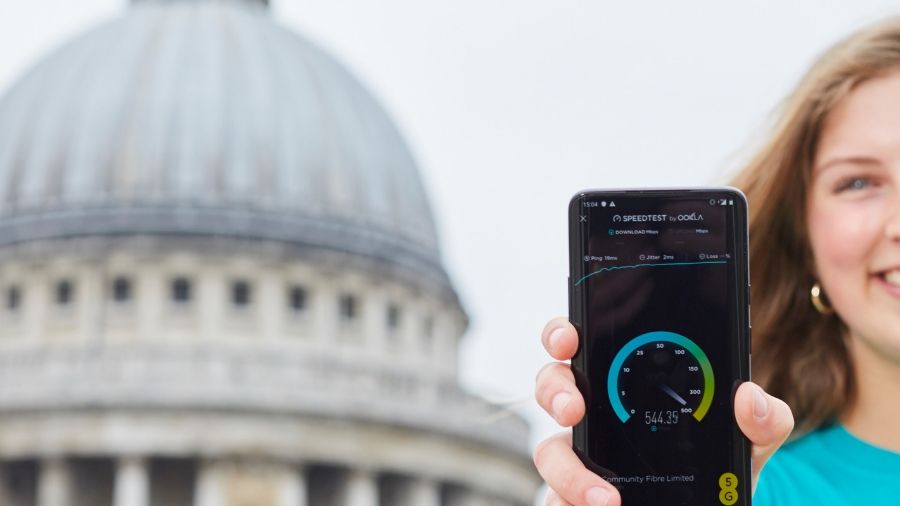5G brings the era of unlimited data back for good
Competitive pressure sees all operators offer unlimited data

Last week, EE confirmed that it would offer unlimited data plans with no speed restrictions for both its 4G and 5G customers. The announcement marked a significant turnaround for the operator, whose initial 5G plans promised significant data limits but no truly limitless option.
But the reversal was perhaps inevitable. EE might have been the first UK operator to launch 5G earlier this year, but Vodafone’s promise of unlimited data plans for consumers and businesses was truly surprising.
Coupled with the fact that Three has long offered unlimited data on its 3G and 4G networks, EE was starting to look a bit out of touch.
- EE offers unlimited 5G
- Vodafone goes unlimited with 5G
- What is 5G? Everything you need to know
Unlimited 5G data
The technical credibility of EE’s 4G and 5G networks and the fact that most users don’t exceed their data allowance would get lost in the conversation if EE scored a marketing own goal of not offering unlimited data.
As operators seek to communicate the advantages of 5G to consumers, perception is everything.
Unlimited data plans were all the rage during the 3G era, but mobile applications back then were significantly less data intensive and operators needed to do everything they could to get customers to migrate.
However as smartphones grew in popularity, the UK’s mobile infrastructure started to creak under the pressure. The launch of 4G networks offered significant improvements in terms of speed and capacity.
Sign up to the TechRadar Pro newsletter to get all the top news, opinion, features and guidance your business needs to succeed!
EE was first to launch in 2012 – nearly a year before its rivals – and it seized the opportunity to abandon unlimited plans. Industry observers at the time were surprised but felt that all operators would be grateful for any move away from the “all-you-can-eat” model of consumption that had seen mobile data become a commodity.
New opportunities
In the 5G era, EE’s first-mover advantage is less secure and it has been forced into action by the aggressive moves of its competitors. There is also a recognition that EE may not be able to maintain a premium on 5G for very long because of changing market conditions.
In any case, data limits are becoming increasingly anachronistic. The capacity gains afforded by 5G are significant and the cost of transmission for operators is reduced. Data limits might influence users to they consume less, but if they’re not getting anywhere near their limit then what’s the point?
5G offers mobile operators the opportunity to offer entirely new consumer services – including Fixed Wireless Access (FWA) broadband services without data limits – and converged products. And in the long run, business will benefit from a whole host of applications.
If consumers believe they are being restricted then they are less likely to embrace 5G and lower consumption means lower revenues. The new use cases reduce the risk of data becoming commoditised and the focus for operators should be on these new possibilities.
The era of unlimited is back, and this time it’s unlikely to go away.
- Here are the best Three mobile phone deals for September 2019
Steve McCaskill is TechRadar Pro's resident mobile industry expert, covering all aspects of the UK and global news, from operators to service providers and everything in between. He is a former editor of Silicon UK and journalist with over a decade's experience in the technology industry, writing about technology, in particular, telecoms, mobile and sports tech, sports, video games and media.